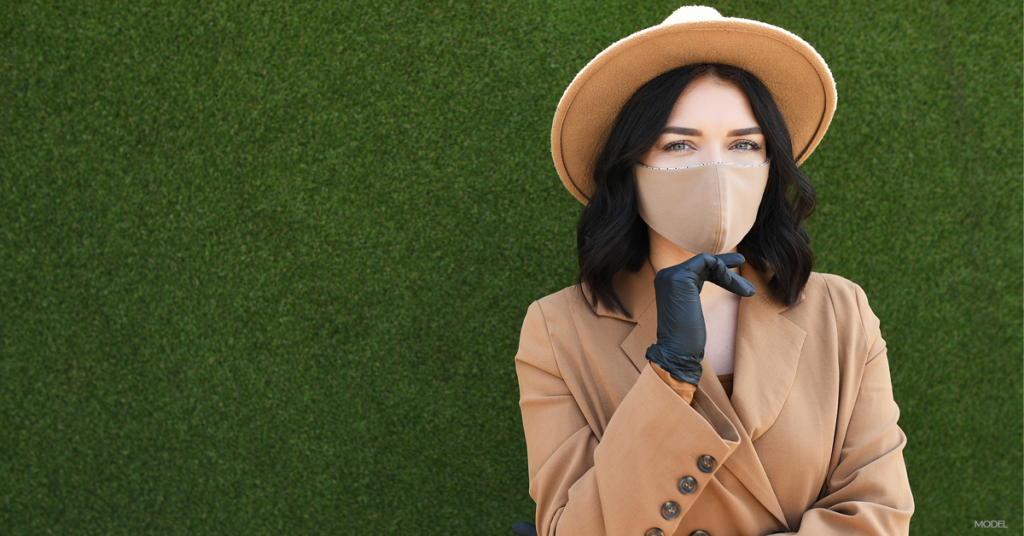With COVID-19 cases persisting, face masks will likely remain a part of our daily routines for the foreseeable future. This is good for public health, but some people—especially those who wear masks throughout much of the day—are experiencing acne flare-ups. “Maskne” is the nickname given to this very real side effect of a mask rubbing against your face.
Is there something a dermatologist in the Houston area can do about this? Absolutely. In this blog post, we’ll explain why “maskne” develops, discuss acne treatments available at DermSurgery locations throughout the Greater Houston area, and describe ways to help prevent the breakouts caused by wearing masks.
What Causes ‘Maskne’?
Understanding the specific causes of “maskne” or other irritations related to wearing face-coverings is important before deciding how to treat them. So, what is the link between wearing masks and acne flare-ups? Yeast, bacteria, and other flora thrive in warm, humid environments—exactly the type of environment created around the mouth by masks. Additionally, masks that don’t fit well and constantly rub against the face can irritate the skin.
Even the best-fitting masks, however, trap moisture, sweat, oil, and dirt close to the skin. The results? Blemishes ranging from acne, small bumps, and inflamed hair follicles to rosacea, pressure sores, and perioral dermatitis (small pimples and pustules around the mouth). As you adjust masks to eat or drink, the problems actually get worse.
How to Treat ‘Maskne’
If these conditions sound familiar, there are some things you can do at home that help. Use cleansers containing salicylic acid (sometimes called salicylic acid peels) to improve mild breakouts. This won’t actually cause the skin to peel but will remove dead skin cells. Benzoyl peroxide cleansers are also good options, but you should know that these products may bleach your mask. We also recommend washing your face occasionally with sulfur shampoos that are gentler on the skin than salicylic acid or benzoyl peroxide. Sulfur dries out the skin and helps absorb excess oil contributing to acne.
For more stubborn acne, you might consider intense pulsed light (IPL) treatments at one of our locations.
Can You Prevent ‘Maskne’?
One of the biggest mistakes people make is wearing the same mask repeatedly without washing it. Washing a mask often helps keep your complexion clear and maintains your mask’s effectiveness in limiting the spread of the novel coronavirus. This is true for all masks, regardless of the material.
Besides washing masks, there are various ways to minimize the chances of developing acne or other skin irritations. Wash your face with a gentle cleanser before wearing a mask and then apply a cream to the area. The cream will act as a barrier and prevent friction caused by the mask. Creams can include sunscreen with zinc or titanium or moisturizers.
Washing and cream barriers work for most people, but if you see little or no improvement, you should consider changing the type of mask you’re wearing. This isn’t an option for health care workers, who may need to see a dermatologist for more advanced prevention tips.
If you’re dealing with complexion issues caused by wearing a mask and want to learn more about treatment and prevention, you can schedule a cosmetic dermatology appointment in Greater Houston by contacting us using the online form or by calling a DermSurgery Associates location near you.


Leave a Reply